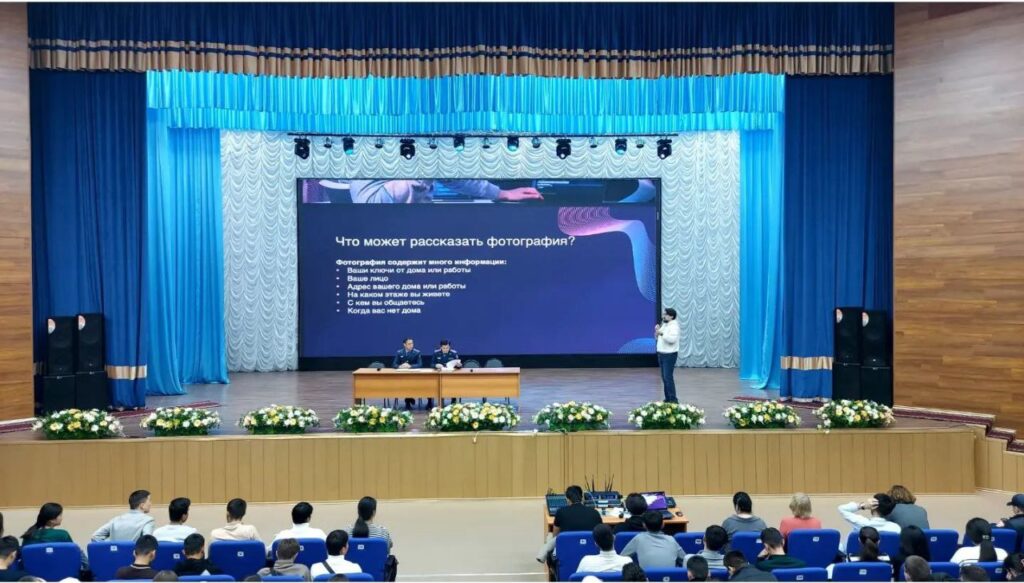The speakers of the meeting were the deputy head of the Administrative Division of the Karaganda region, police Colonel Ashimov Maksat Isatayevich and the head of the department of the Administrative Division of the Karaganda region, police Lieutenant Colonel Kayrakbayev Arman Maratovich.
During the event, the following issues were considered: the main types of Internet threats; new and rapidly developing forms of cybercrime, responsibility for committing cybercrime; organization of secure networking and the influence of mass media on social and moral guidelines.
Every day, scammers come up with new schemes of deception using modern technologies and methods of social engineering. According to statistics, the number of scams committed via the Internet, mobile phone, What’s App is steadily growing. Today, the underworld is deceiving the public online. The most common schemes of phishing attacks: sending viral emails, SMS messages or push notifications with links that lead to a double site. Most often, scammers pose as representatives of well-known organizations in emails or phone calls and offer very tempting offers, for example: participation in various sweepstakes and lotteries, or, conversely, intimidate potential victims by sending a message that their debt has been transferred to collectors, and in order to find out the amount of debt, it is necessary go to the specified link. If you click on a phishing link and enter your personal data, you will automatically fall on the hook of intruders.
Another trick of scammers is the creation of fake bots in popular messengers, including on behalf of banks. Pseudobots ask users to enter personal data and bank card data, they can request a code from an SMS. As soon as the attackers know this information, they can withdraw all the money from the cards of gullible citizens and, in addition, issue loans to them in a fraudulent way.
During the meeting, the speakers explained to our students how to protect themselves from Internet scammers and urged the participants of the meeting not to distribute their personal information on other sites and not to transfer personal data to outsiders, treat Internet scammers with extreme caution, observe simple security rules to protect their data from financial scammers. Never, under any pretext, tell anyone: passwords, usernames, codes and other personal data (IIN, ID card numbers, passport, payment card details: three-digit code on the back of the card (CVV/CVC code), card number, expiration date, etc.). Do not transfer to anyone and do not pledge your identity document; do not publish photos of your documents on social networks and do not send them to third parties via WhatsApp, Telegram, Viber and other messengers. Do not send your data to participate in dubious online contests and lotteries. Do not follow phishing links.
Before registering on suspicious sites, check their address, which should start with https:/.
When opening an account or card, activate the SMS or push notification service about transactions. Use complex passwords in your mobile banking application, as well as for mail and social media accounts. Passwords must be different.
Regularly update the antivirus software on your devices.


